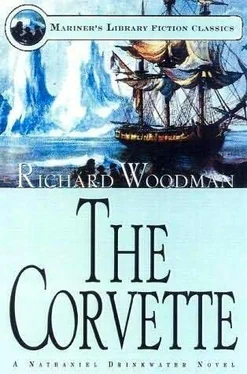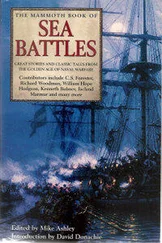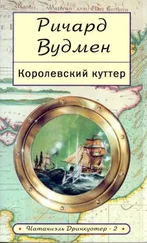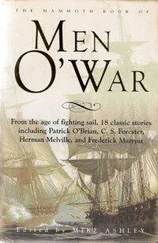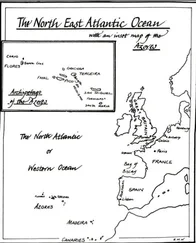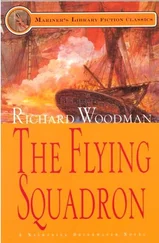Ричард Вудмен - The Corvette
Здесь есть возможность читать онлайн «Ричард Вудмен - The Corvette» весь текст электронной книги совершенно бесплатно (целиком полную версию без сокращений). В некоторых случаях можно слушать аудио, скачать через торрент в формате fb2 и присутствует краткое содержание. Жанр: Морские приключения, Исторические приключения, на английском языке. Описание произведения, (предисловие) а так же отзывы посетителей доступны на портале библиотеки ЛибКат.
- Название:The Corvette
- Автор:
- Жанр:
- Год:неизвестен
- ISBN:нет данных
- Рейтинг книги:5 / 5. Голосов: 1
-
Избранное:Добавить в избранное
- Отзывы:
-
Ваша оценка:
- 100
- 1
- 2
- 3
- 4
- 5
The Corvette: краткое содержание, описание и аннотация
Предлагаем к чтению аннотацию, описание, краткое содержание или предисловие (зависит от того, что написал сам автор книги «The Corvette»). Если вы не нашли необходимую информацию о книге — напишите в комментариях, мы постараемся отыскать её.
Commander Drinkwater's experience of battle was what mattered when Earl St Vincent entrusted Drinkwater with his new command — as escort to the Arctic whaling fleet on its annual expedition to the Greenland seas. With the French established as masters of the war upon trade, violent action ensued.
The Corvette — читать онлайн бесплатно полную книгу (весь текст) целиком
Ниже представлен текст книги, разбитый по страницам. Система сохранения места последней прочитанной страницы, позволяет с удобством читать онлайн бесплатно книгу «The Corvette», без необходимости каждый раз заново искать на чём Вы остановились. Поставьте закладку, и сможете в любой момент перейти на страницу, на которой закончили чтение.
Интервал:
Закладка:
'There was an altercation in public, sir. An exchange of insults ashore between Captain Palgrave and the captain of one of the whale-ships.'
'How did this happen? Were you present?'
Germaney nodded. 'Sir James met Captain Ellerby, the master of the Nimrod , in the street. Ellerby was out walking with his daughter and there had previously been some words between him and Sir James about the delays in sailing. It is customary for the whale-ships to sail in early April to hunt seals before working into the ice in May…'
'Yes, yes, go on.'
Germaney shrugged. 'Sir James paid some exaggerated and, er, injudicious compliments to the daughter, sir, to which Ellerby took exception. He asked for a retraction at which Sir James, er…'
'Sir James what?'
'He was a little the worse for liquor, sir…'
'I should hope he was, sir, I cannot think an officer would behave in that manner sober. But come, what next? What did Sir James say?'
'He made the observation that a pretty face was fair game for a gentleman's muzzle.'
'Hardly an observation, Mr Germaney. More of a highly offensive double-entendre , wouldn't you say?'
'Yes, sir.'
'Then what happened?'
'Ellerby struck him with his stick and Sir James was restrained by myself and Mr Mount. Sir James said he would call for satisfaction if Ellerby had been a gentleman and Ellerby shouted that he would meet him if only to teach a gentleman manners… And so the unhappy affair progressed. Sir James was not entirely well the following morning and though he fired first his ball miscarried. Ellerby's ball took him in the spleen.'
'So the affair was public hereabouts?'
'As public as a Quaker wedding, sir,' concluded Germaney dejectedly.
'And hushed up, I don't doubt, with public sympathy supporting Ellerby and the town council firmly behind the move, eh?'
'Yes, sir. They provided a doctor and a chaise to convey Sir James away to his seat as fast as possible. It was not difficult to persuade him to resign, though damnably difficult to stop Macpherson leaving with him. But the city fathers would not hear of it. Macpherson had become too well-known in the taverns for a loud-mouthed fool. Until you told me I had supposed the matter hushed outside the town. I stopped all shore-leave, though I expect that by now the water-folk have spread the news among the men.'
'I don't doubt it. You and Mount stood seconds, did you?'
'Mount refused, sir.'
'Ahhh.' Mount's conduct pleased Drinkwater. It must have taken considerable moral courage. 'Well, Mr Germaney, your own part in it might yet be concealed if we delay no further.'
'Thank you, sir… About the surgeon, sir. It is not right that we should make a voyage to the Arctic with such a man.'
'No.' Drinkwater refilled the glasses. Germaney's explanation made him realise the extent of his task. The whale-ship captains, already delayed by government proscription pending the outcome of developments with France, had been further held up by Palgrave's dilatoriness, to say nothing of his arrogance and offensiveness. He knew from his own orders that the Customs officers would issue the whale-ships their clearances at a nod from Melusine 's captain, and he had no more desire than the whalers to wait longer. Delay increased the risk of getting fast in the ice. If that happened Melusine would crack like an egg-shell.
'But there is now no alternative. We will sail without delay. Now I desire that you send a midshipman to visit each of the whale-ships, Greenlanders they call 'emselves, don't they? He is to invite them to repair on board tomorrow forenoon and we can settle the order of sailing and our private signals. And tell the young gentleman that I would have the invitation made civilly with my cordial compliments.'
'Yes, sir,' said Germaney unhappily, 'and the surgeon?'
'Tell the surgeon,' said Drinkwater with sudden ferocity, 'that if I find him drunk I shall have him at the gratings like any common seaman.'
Two hours later Drinkwater received a round-robin signed by a dozen names stating that the whale-ship commanders 'Would rather their meeting took place ashore at the Trinity House of Kingston-upon-Hull…'
Drinkwater cursed Sir James Palgrave, annoyed that he must first set out to woo a set of cantankerous merchant masters who set the King's commission so lightly aside. Then he calmed himself and reflected they had little cause to love the Royal Navy. It plundered their ships of prime seamen, usually when they were entering the Humber and after the hardships of an Arctic voyage. There was already a Regulating Captain set up in the city with all the formal machinery of the Impress Service at his finger tips. Drinkwater remembered the story of a whaler abandoned by her entire crew off the Spurn Head as the cruising frigate hove in sight to press her crew.
No, they had no cause to love the Navy hereabouts and suddenly the vague, universal preoccupation of the justice of the present war came back to him. And as quickly was dismissed as irrelevant to the task in hand.
Chapter Three
The Greenlanders
The tie-wigged usher conducted Drinkwater through the splendid corridors of the Trinity House of Kingston-upon-Hull. His previous connections with the corporation had been with the Baltic pilots it had supplied for the Copenhagen campaign two years earlier. Their performance had been disappointing and had clouded his opinions, so that he had forgotten the Arctic connection of the brotherhood.
The usher paused for a second before a heavy door from beyond which came the noise of heated argument. Drinkwater caught the phrase 'two months late' and the angrier, 'what guarantee have we of a bounty…?' Then the usher opened the door and announced him.
Drinkwater advanced into the room. He was in full dress with cocked hat and sword. The room was lit by tall windows and rushes were strewn across the plain boarded floor. Sitting and standing round a long mahogany table about two dozen men in all shades of civilian clothing turned towards him. Their complexions varied from the effects of their diet, the privations of their calling and the present heat of their passions. He was acutely aware of a wall of prejudice and remained observantly circumspect. He inclined his head.
'I give you good day, gentlemen.'
'Huh!' A huge black bearded man who sat cross-armed and truculent upon the nearer edge of the table turned his face away. Drinkwater kept his temper.
'Thou woulds't do better to keep thyself civil, Friend Jemmett.' A man in the dark green and broad-brimmed hat of a Quaker rose from a seat behind the table. He came forward and indicated an upright chair.
'Pray seat thyself, sir. I am Abel Sawyers, master of the Faithful .' The Quaker's voice was low and vibrant.
Drinkwater sat. 'I am indebted to you, Captain Sawyers.' He looked round the circle of faces. They remained overwhelmingly hostile, clearly awaiting his first move.
'I am aware, gentlemen, that there has been disruption of your intentions…'
'Some disruption!' The big, black bearded man spoke after spitting into the straw for emphasis. 'Some disruption! We are nearly two months late, too late to qualify for the bounty, God damn it! I do not expect you to give a toss for our dependents, Captain , but by God do not you try to prevent us sailing by trading our clearances against men out of our ships.'
A chorus of agreement greeted this remark. Drinkwater knew the Melusine was short of a dozen hands but the idea of pressing men out of his charges had not occurred to him. Indeed he considered the deficiency too small to worry over. It seemed that Sir James Palgrave's iniquities extended to the venal.
Читать дальшеИнтервал:
Закладка:
Похожие книги на «The Corvette»
Представляем Вашему вниманию похожие книги на «The Corvette» списком для выбора. Мы отобрали схожую по названию и смыслу литературу в надежде предоставить читателям больше вариантов отыскать новые, интересные, ещё непрочитанные произведения.
Обсуждение, отзывы о книге «The Corvette» и просто собственные мнения читателей. Оставьте ваши комментарии, напишите, что Вы думаете о произведении, его смысле или главных героях. Укажите что конкретно понравилось, а что нет, и почему Вы так считаете.
